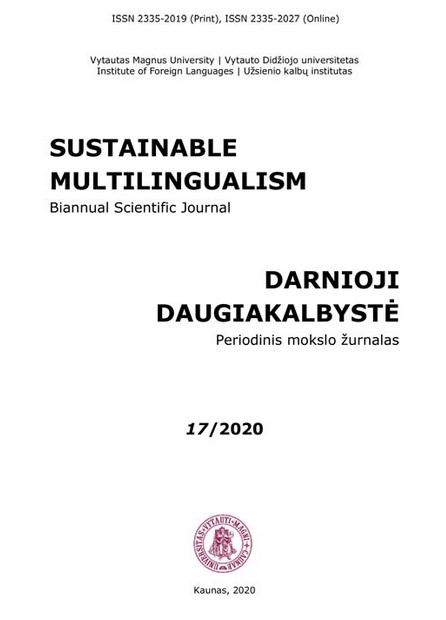SPIELRÄUME IN EINEM AUTONOMIEFÖRDERNDEN DAFUNTERRICHT. EIN BEISPIEL AUS DER UNIVERSITÄREN UNTERRICHTSPRAXIS
PROMOTION OF STUDENT AUTONOMY IN LEARNING THE GERMAN LANGUAGE. UNIVERSITY CASE STUDY
Author(s): Sidona ŽvaliauskienėSubject(s): Foreign languages learning, Language acquisition, Higher Education , Philology
Published by: Vytauto Didžiojo Universitetas
Keywords: Learner orientation, Learner autonomy; Foreign language class; DaF; Teaching practice; German philology studies; Vytautas Magnus University;
Summary/Abstract: The concept of learner-centered teaching is very popular in modern foreign language didactics. Specialized literature emphasizes repeatedly how important it is to enable individual and self-directed learning processes and to support them with advice. It is obvious that autonomy can be seen as a key competence that is urgently needed in a constantly changing world of work. With the principles of learner orientation and learner autonomy, the roles of university lecturers and students are also changing. So it seems to be essential for lecturers to answer the following questions: Under what conditions can self-determined, efficient and successful foreign language learning take place in a university-learning environment? How much freedom students can or want to endure in a foreign language class? What are the limitations of learner-oriented teaching in foreign language classes? This article reports on the implementation of the pedagogical concepts of learner orientation and learner autonomy and shows why the use of the didactic principle of learner autonomy in universities is a challenging task for both teachers and learners. The statements are based on the insights gained during the BA seminar on contemporary German language at Kaunas Vytautas Magnus University.
Journal: Darnioji daugiakalbystė
- Issue Year: 2020
- Issue No: 17
- Page Range: 231-253
- Page Count: 23
- Language: German

